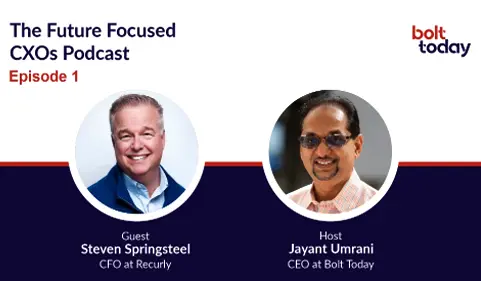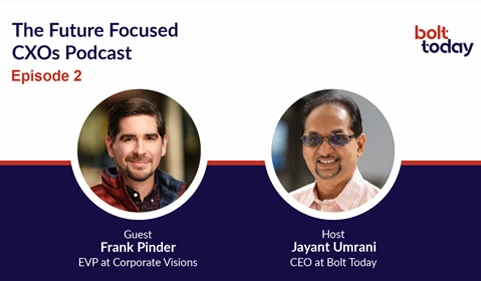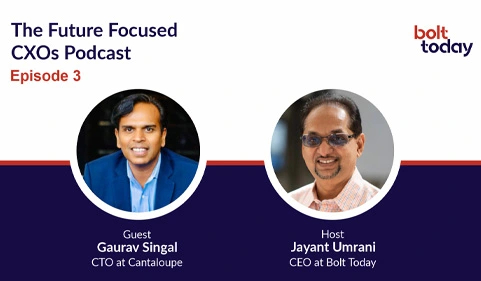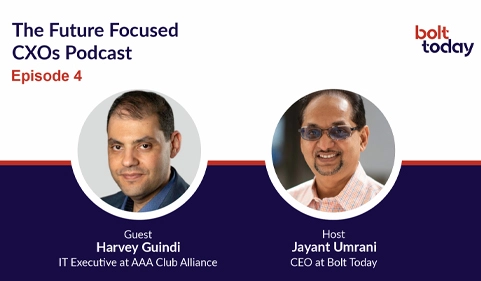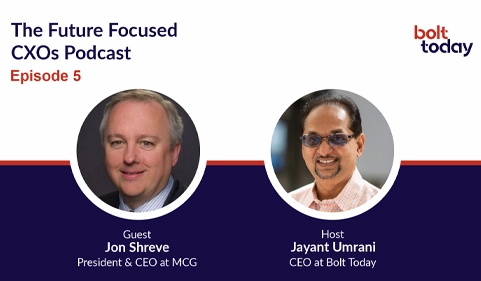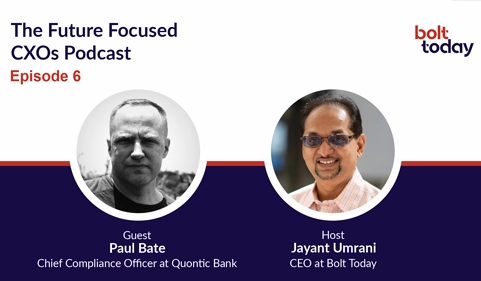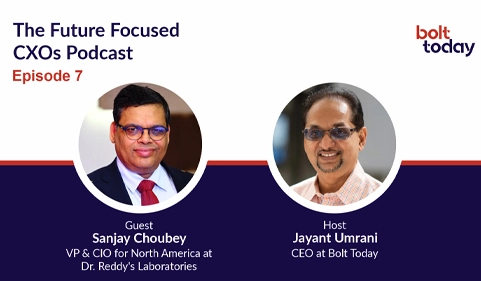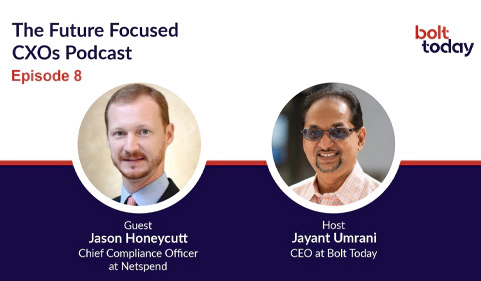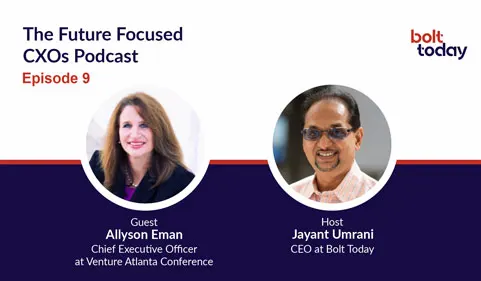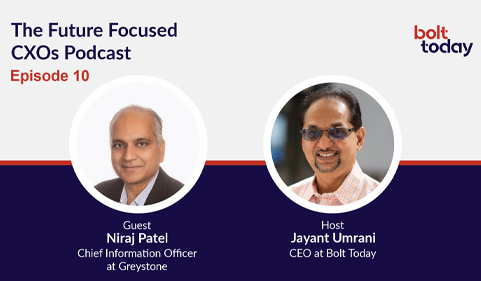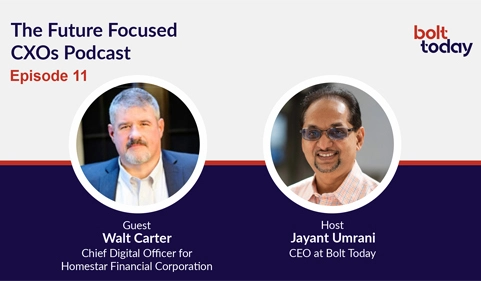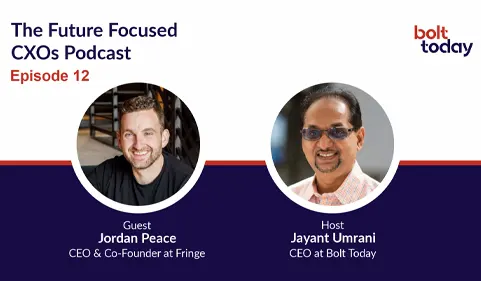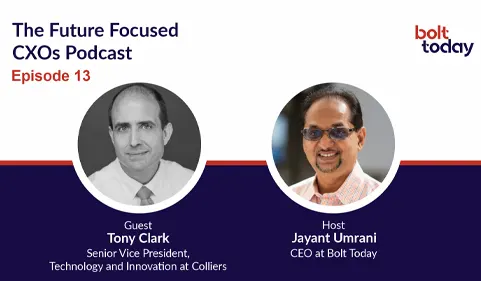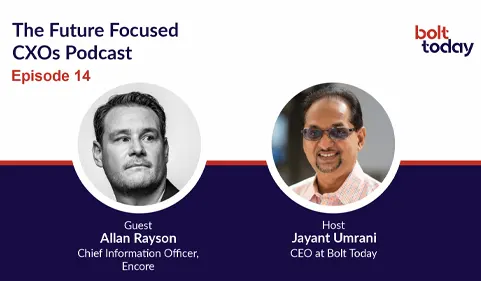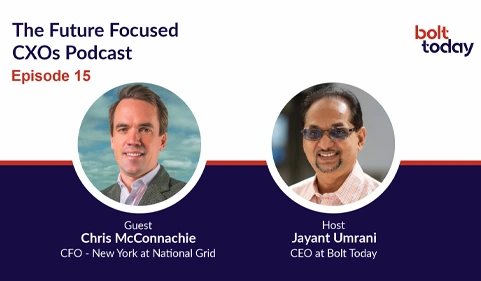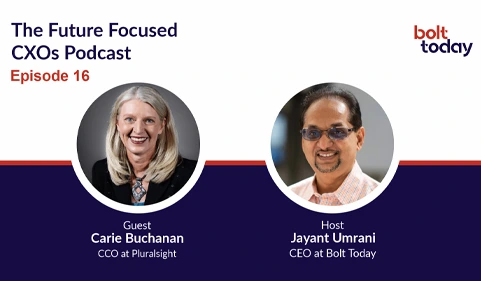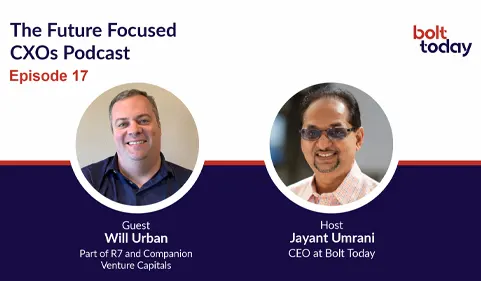Discover the winning strategies used by top CXOs to drive growth in their companies, even in the toughest of times! Join us on this must-listen podcast as we learn from the best in the business world.
In this Episode, Quontic Bank's Chief Compliance Officer, Paul Bate shares
Tune in to Engaging Conversations and Insights!
Topics Discussed
1:15 - My career took an unexpected turn after leaving the Marine Corps when I struggled to pass the vision test for a law enforcement job with the FBI. This failure caused me to reconsider my alternatives, and I ended up working as a part-time teller at a bank while pursuing a career in local police enforcement. As my banking career progressed, I received an offer from a police agency. However, I eventually discovered my true calling as a compliance officer for a regional bank in the Pacific Northwest. Using my retail banking knowledge, I rapidly adapted to the issues that compliance officers, mortgage lenders, deposit officers, and operations supervisors encounter. This unexpected journey has eventually led me to my current position.
2:43 - Effort without direction is similar to hitting the gas pedal in a car without looking ahead. Many individuals feel that pushing themselves harder will lead to success, but life is rarely a straight line. It is critical to concentrate on the journey and set a goal. Working tirelessly without a clear direction is like spinning wheels in a muddy field—there's a lot of noise and exertion but little forward movement. Effort must be directed, intentional, and linked with the desired objective; otherwise, it is wasted energy.
3:51 - When I decided to work in compliance, I drew on the leadership ideals I learned in the Marine Corps, emphasizing teamwork and transparency. I pursued various experiences to reach my objective of becoming a Chief Compliance Officer. I worked as a Field Examiner at the FDIC to learn about regulatory processes and examiner outlooks. I also completed the Pacific Coast Banking School program, which increased my banking knowledge in all areas. This all-encompassing approach guaranteed that I not only understood compliance but also how it interacted with other disciplines. My path was systematic and focused, which eventually led me to where I am now.
6:51 - To effectively deal with challenges related to fraud, it is critical to use technology while remaining agile and always looking for new solutions. Using only one platform or solution increases vulnerabilities because fraudsters adapt and exploit flaws. We prioritize continual progress by utilizing our present resources to the greatest extent possible while continuously investigating alternate platforms and modules. We take a proactive approach to fraud prevention by remaining watchful and keeping up with new threats. I frequently compare our duty to going up the incorrect escalator - if we stop or become complacent, we risk slipping back down. To keep ahead of exploitation, you must be constantly moving and eager to develop.
9:00 - To combat compliance and financial crime, we use a variety of technologies and platforms, such as Verafin, as well as systems that monitor user activity for suspicious conduct. However, we realize the importance of human intervention to avoid any misuse. Our team investigates warnings, investigates questionable activity, and intervenes to remedy security breaches. By examining public reports and remaining current on regulatory trends, we prioritize compliance. Proactive monitoring, such as observing developments like Silicon Valley Bank's bankruptcy, aids in the identification of weaknesses and the implementation of complete risk management. We try to deliver effective risk mitigation by combining technology, regulatory intelligence, and forward-thinking compliance procedures.
12:41 - When presented with new technologies, leaders frequently strive to be at the forefront and discover novel solutions. The problem emerges when people become obsessed with the novelty and rush to implement it, aspiring to be technology leaders rather than quick followers. This is where my expertise and role come into play. My team verifies that the technology delivers on its promises by evaluating its luster and functionality. We assess whether it provides significant advantages over our existing systems, taking into account expenses, integration costs, and overall value. It can be difficult to convey that, while new technology may appear to be superior, it may not deliver anything new that our current systems cannot achieve since we have yet to fully leverage existing capabilities. In my role, managing expectations and keeping a realistic perspective on the technology's potential is critical.
15:43 - One of the best practices I follow is to assess the benefits of new technology against the costs of adoption, integration, and any disruptions. It is critical to examine whether the technology truly gives the features that our present systems lack. Sometimes new technology might not provide major benefits, or its advertised qualities may already exist in our current systems but are underutilized.
In addition, I have reconsidered the need for thorough compliance knowledge among my employees. With the remote work arrangement, I've realized that, although absolute knowledge is crucial, it's also important to focus on mentoring and educating employees.
19:09 - In the financial business, if you don't use technology appropriately or frequently enough, you risk losing profits or losing jobs. Risk analysis is something that I believe many people overlook when it comes to technology because they believe the system will correct whatever is wrong. If there is an issue, we can correct it after it is up and running. What I've learned from my non-banking and regulatory examiner careers is that it's usually a formula for disaster.
You didn't do enough research. You must have a workaround for this, as well as have control over that workaround. I think is essential that when it comes to integrating new technology platforms, it's always critical as part of your due diligence process to talk to the people who will eventually be utilizing it.
24:01 - I recommend that individuals not limit themselves to becoming experts in a specific sector to flourish in their careers. They must grasp how their field of expertise fits into the larger picture. Regardless of age or experience, continuous learning and openness to new knowledge are essential. Building successful teams involves employing people who excel in specific areas and are even better than oneself.
Additionally, continuous training in areas beyond the immediate job role is essential. Embracing a learning mindset and supporting personal growth contribute to professional development. Finally, taking care of one's team is important. Recognizing and giving credit to individuals for their contributions, both publicly and in important forums, fosters a positive work environment and motivates team members to go above and beyond.
In summary, my recommendation is to nurture a diverse skill set, accept continual learning, recognize the changing nature of one's work as one progresses, and prioritize taking care of and acknowledging the team's accomplishments.

